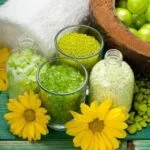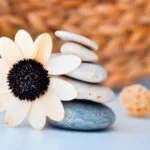Aromatherapy, as a holistic approach to wellness, has gained popularity in recent years for its potential to address physical, emotional, and mental well-being. Rooted in ancient holistic health practices, aromatherapy harnesses the therapeutic properties of essential oils to promote overall wellness and balance. In this article, we will explore the history of aromatherapy, its use in addressing specific health conditions, and the various techniques and practices associated with this holistic approach.
The practice of aromatherapy traces its roots back to ancient civilizations such as Egypt, China, and India. It involves the use of essential oils extracted from plants to enhance physical and psychological well-being. Aromatherapy is considered a holistic approach due to its focus on treating the whole person rather than just specific symptoms or ailments. The benefits of incorporating aromatherapy into one’s daily routine can range from stress relief and improved sleep to mood enhancement and pain management.
Understanding essential oils is key to grasping the effectiveness of aromatherapy as a holistic approach. Essential oils are highly concentrated plant extracts that retain the natural aroma and therapeutic properties of their source plants. These oils can be used in various ways, including through inhalation, topical application, and diffusion.
Different types of essential oils have distinct therapeutic properties that can be utilized for different health conditions or goals. In the following sections, we will delve into the history of aromatherapy and its origins, as well as explore the specific benefits associated with using this holistic approach for overall health and wellness.
History of Aromatherapy
Aromatherapy has a long and rich history, dating back thousands of years to ancient civilizations such as Egypt, China, and India. The use of aromatic plant extracts for therapeutic purposes has been a central component of holistic health practices throughout history.
In fact, the term “aromatherapy” itself was coined in the early 20th century by French chemist Rene Maurice Gattefosse, who discovered the healing properties of lavender oil after burning his hand and finding relief from the burn after submerging it in lavender oil.
Key historical figures have played significant roles in the development and popularization of aromatherapy as a holistic approach to wellness. For example, Greek physician Hippocrates documented the use of fragrant oils for their medicinal properties, while ancient Chinese texts dating back to 2697 BC mention aromatic plants and their healing benefits.
In more recent times, prominent figures like Robert Tisserand and Jean Valnet have conducted extensive research on essential oils and their therapeutic uses, contributing to the understanding and acceptance of aromatherapy as a holistic health practice.
Incorporating aromatherapy into holistic health practices allows individuals to benefit from its rich historical roots and time-tested effectiveness. By recognizing its origins in ancient cultures and its continued evolution as a healing modality, individuals can tap into the traditional wisdom behind aromatherapy as a means of promoting overall well-being. Utilizing essential oils through methods such as diffusing, topical application, or inhalation can provide physical, emotional, and mental benefits that align with the principles of holistic wellness.
Understanding Essential Oils
Aromatherapy, often referred to as essential oil therapy, is a holistic approach to health and wellness that dates back to ancient civilizations. Essential oils are natural, aromatic compounds found in the seeds, bark, stems, roots, flowers, and other parts of plants. They have been used for centuries in various cultures for their medicinal and therapeutic benefits.
Essential oils are extracted from plants through methods like distillation or cold pressing. Each essential oil contains its own unique chemical composition that gives it specific therapeutic properties. For example, lavender essential oil is known for its calming and relaxing effects, while peppermint essential oil is often used for its energizing and invigorating properties.
When it comes to understanding essential oils in the context of aromatherapy as a holistic approach, it’s important to recognize the diverse range of oils available and their potential uses. Some essential oils have anti-inflammatory properties, while others are antimicrobial or can help alleviate stress and anxiety.
In aromatherapy practices, different methods of using essential oils include inhalation (through diffusers or direct inhalation), topical application (diluted with a carrier oil and applied to the skin), and even ingestion (under the guidance of a qualified practitioner). These techniques allow the therapeutic properties of essential oils to be absorbed into the body and provide holistic benefits for both physical and emotional well-being.
| Essential Oils | Therapeutic Properties |
|---|---|
| Lavender | Calming and relaxing effects |
| Peppermint | Energizing and invigorating properties |
| Chamomile | Sleep-inducing and soothing effects |
| Eucalyptus | Respiratory support and decongestant properties |
Aromatherapy Techniques and Practices
Aromatherapy as a holistic approach encompasses various techniques and practices aimed at promoting overall well-being. One of the most common methods of incorporating aromatherapy into holistic health practices is through the use of essential oils. These highly concentrated plant extracts are derived from different parts of aromatic plants, such as flowers, leaves, or roots. Essential oils are known for their therapeutic properties and can be used in a variety of ways to support physical, emotional, and mental health.
One popular aromatherapy technique is diffusion, which involves dispersing essential oils into the air using devices such as diffusers or nebulizers. This method allows for easy inhalation of the aromatic molecules, which can have a positive impact on mood, stress levels, and cognitive function.
Another common practice is topical application, where essential oils are diluted in carrier oils and applied to the skin through massage or other forms of bodywork. This allows for direct absorption of the oils into the bloodstream, offering benefits such as pain relief and relaxation.
Inhalation is also a widely used aromatherapy technique that involves breathing in the aroma of essential oils through steam inhalation or by simply opening a bottle and taking deep breaths. This method can help alleviate respiratory issues, improve mental focus, and enhance emotional well-being. By understanding these various techniques and practices, individuals can effectively harness the power of aromatherapy as a holistic approach to promote optimal health and wellness.
| Aromatherapy Technique | Benefits |
|---|---|
| Diffusion | Mood enhancement, stress relief |
| Topical Application | Pain relief, relaxation |
| Inhalation | Respiratory support, improved focus |
Benefits of Aromatherapy in Holistic Health
Aromatherapy has been used for centuries as a holistic approach to promoting health and well-being. This natural healing practice harnesses the therapeutic properties of essential oils to address physical, emotional, and mental imbalances. By incorporating aromatherapy into holistic health routines, individuals can experience a wide range of benefits that contribute to overall wellness.
Some of the key benefits of using aromatherapy as a holistic approach include:
- Stress Relief: Certain essential oils, such as lavender and chamomile, have calming properties that can help reduce stress and anxiety when inhaled or applied topically.
- Improved Sleep: Aromatherapy can promote relaxation and enhance sleep quality by creating a soothing environment with the use of sleep-inducing essential oils like bergamot and sandalwood.
- Mood Enhancement: Citrus essential oils like lemon and orange are known for their uplifting effects on mood, making them valuable tools for emotional balance and well-being.
In addition to these specific benefits, aromatherapy is also effective in supporting overall holistic health by addressing both physical and mental aspects. Its natural, non-invasive approach aligns with the principles of holistic health, which emphasize the interconnectedness of mind, body, and spirit. As a result, aromatherapy contributes to a comprehensive sense of well-being when integrated into a holistic lifestyle.
Aromatherapy for Specific Conditions
Addressing Anxiety and Stress
One of the most common uses of aromatherapy as a holistic approach is to address anxiety and stress. Essential oils such as lavender, rose, and chamomile are known for their calming properties and can be used in various aromatherapy techniques to promote relaxation. Diffusing these oils at home or in the workplace, adding a few drops to a warm bath, or using them in massage oils can help alleviate symptoms of anxiety and reduce stress levels.
Relieving Headaches
Aromatherapy has also been found to be effective in relieving headaches, whether they are tension-related or migraines. Peppermint and eucalyptus essential oils have analgesic and anti-inflammatory properties that can help alleviate headache symptoms when used in aromatherapy practices. Inhaling these essential oils or massaging them onto the temples and neck can provide relief from headaches.
Improving Respiratory Issues
For individuals dealing with respiratory issues such as congestion or allergies, certain essential oils used in aromatherapy can provide relief. Eucalyptus, tea tree, and peppermint essential oils have decongestant and expectorant properties that make them effective for easing breathing difficulties. Using these oils in steam inhalation or adding them to a chest rub can help improve respiratory function.
By addressing specific health conditions through the use of aromatherapy, individuals can experience targeted relief from symptoms while also benefiting from the overall holistic approach to wellness that aromatherapy offers. Understanding the therapeutic properties of different essential oils and incorporating them into daily routines can contribute to improved physical, emotional, and mental well-being.
Incorporating Aromatherapy Into Daily Life
Aromatherapy has long been used as a holistic approach to achieving overall wellness. By incorporating essential oils into daily routines, individuals can experience a multitude of benefits for their physical, emotional, and mental well-being. This section will provide practical tips for integrating aromatherapy into everyday life to promote holistic health.
Practical Tips for Daily Aromatherapy
One simple way to incorporate aromatherapy into daily life is through the use of essential oil diffusers. These devices disperse the aroma of essential oils throughout a space, providing their therapeutic benefits while also creating a pleasant and inviting atmosphere. Individuals can choose specific essential oils based on their desired effects, such as relaxation, energy boost, or mental clarity.
Another method for incorporating aromatherapy into daily routines is through topical application. Diluted essential oils can be applied to the skin during massage, added to bathwater, or used in homemade skincare products. This allows the body to absorb the beneficial properties of the oils, promoting physical well-being while also engaging the senses.
Customized Blends and Self-Care Rituals
In addition to using single essential oils, individuals can create customized blends that cater to their specific needs and preferences. By experimenting with different combinations of essential oils, people can develop personalized aromatherapy rituals that enhance their overall wellness. For example, creating a calming blend for use during meditation or yoga practice can further support relaxation and stress relief.
Furthermore, integrating aromatherapy into self-care rituals can help individuals cultivate a sense of mindfulness and intentionality in their daily lives. Establishing a morning or evening routine that includes aromatherapy practices like deep breathing with essential oils or applying an uplifting blend before starting the day can contribute to a holistic approach to self-care and well-being.
By infusing daily routines with the use of aromatherapy, individuals have the opportunity to experience its holistic benefits throughout each aspect of their lives. Whether it’s through diffusing essential oils at home or utilizing customized blends for self-care rituals, incorporating aromatherapy into daily life promotes overall wellness for both the body and mind.
Aromatherapy and Holistic Healing
In conclusion, aromatherapy is a valuable tool in the realm of holistic health and wellness. It offers a natural and comprehensive approach to addressing physical, emotional, and mental well-being. By incorporating essential oils into various techniques and practices, individuals can experience the numerous benefits of aromatherapy as a holistic approach.
Throughout history, aromatherapy has been used as a holistic approach to health and healing. Its origins can be traced back to ancient civilizations and have since evolved into a widely recognized practice with proven therapeutic properties. Essential oils play a significant role in aromatherapy, offering diverse benefits that contribute to overall well-being.
Incorporating aromatherapy into daily life can enhance one’s self-care routine, creating opportunities for relaxation, stress relief, and improved mood. Whether it’s through diffusing essential oils at home or using customized blends for specific conditions, aromatherapy can be seamlessly integrated into everyday routines to promote holistic wellness.
Furthermore, the complementary nature of aromatherapy with other holistic approaches such as yoga, meditation, and acupuncture reinforces its place in promoting overall health and healing. With its rich history and proven benefits, aromatherapy continues to be an essential component of holistic health practices for individuals seeking natural alternatives for their well-being needs.
Frequently Asked Questions
What Is the Holistic Use of Essential Oils?
The holistic use of essential oils involves using them for their physical, emotional, mental, and even spiritual benefits. This practice recognizes that essential oils can affect the whole person, not just a specific symptom or issue.
Is Aromatherapy a Healing Practice?
Aromatherapy is often considered a healing practice due to its ability to promote relaxation, reduce stress, alleviate pain, and improve overall well-being. While it may not cure diseases, it can complement traditional medical treatments.
What Is the Belief System of Aromatherapy?
The belief system of aromatherapy is based on the idea that aromatic compounds in essential oils can exert a powerful influence on the mind and body. It draws on the principles of traditional herbal medicine and natural healing to promote health and wellness through the use of plant-derived oils.

Are you looking for a natural way to improve your health and wellbeing?
If so, aromatherapy may be the answer for you.






